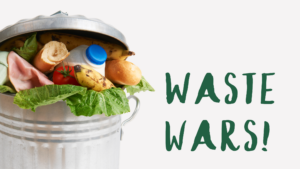Last week, the Federal Government won its case for plain packaging against Big Tobacco. When you’re working in public health advocacy it’s these infrequent but important victories that keep you going because to be honest, there haven’t been a lot of victories of late in regard to obesity policy.
The Obesity Policy Coalition aims to influence change in policy and regulation to help prevent obesity, particularly in children. We are currently focussing on improving food labelling, investigating financial incentives to reduce overconsumption of junk food (and increase consumption of healthy food) and restricting unhealthy food marketing to children.
This used to involve a lot of submissions to government, complaints to various regulatory bodies and advice on policy. This often meant being confronted by the processed food lobby – the Australian Food and Grocery Council – in the media. But in the past few years the AFGC, has managed to inveigle its way into many of the government’s panels and processes, which has made our task even harder.
When CEO of the General Practice Network, Kate Carnell took the role of head of the AFGC, she retained her position on the Preventative Health Taskforce. For many in public health, this was a clear conflict of interest. This has been pivotal in legitimising the position of industry as ‘part of the solution’ and a key player in developing health policy. This has morphed into a new era, where public health groups are being directed to work with industry to develop policy.
There are fundamental problems with this approach – the greatest being the conflict of positions – public health groups want to implement policies that evidence has shown to be most effective in addressing poor diets and obesity, eating less highly processed foods. The same actions also endorsed by the Preventative Health Taskforce in their strategy. These include clearer labelling on packaged food, restricting junk food marketing to children and consideration of taxing unhealthy food and subsidising the cost of healthy food. Now these types of policies will have a direct impact on demand for and consumption of many processed foods, therefore they are not supported by industry, including the AFGC. “Our role is to help shape a business environment that encourages the food and grocery products industry to grow and remain profitable,” the AFGC says on its corporate website.
Growing profits and decreasing consumption are simply incompatible. So what happens?
Basically the industry has dragged out debate and action at a rate that makes the sloth look like Usain Bolt.
I think many people would be surprised to learn that food companies such as McDonald’s and Coke have a say over Australian health policy.
Here are a couple of examples:
Food labelling
After government instigated an independent review of food labelling, headed by Dr Neal Blewett a recommendation was made to implement traffic light labelling on processed foods. Intense lobbying from the food industry followed and the government rejected the recommendation. The Commonwealth has now initiated a process of negotiation between peak public health groups and industry to reach a compromise position on other, alternative labelling options for packaged foods. This is being guided by a strong set of principles, but will be voluntary and rely on industry for implementation and broad coverage of packaged foods. The options will be presented to government ministers at the end of 2012.
Advertising to children
The World Health Organization recommends restricting junk food marketing to children; however in Australia, we have left the fox in charge of the hen house – that is, on the whole advertisers are left to regulate themselves. Rather than the government taking up the WHO’s recommendations, we are again being asked to work with industry to find a solution. And yet again this process will result in major compromises in terms of health, as it is not in food manufacturers or the advertising industry’s interests to decrease marketing to children.
Are you comfortable with multinational companies having so much influence over the health of our children?




